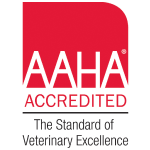Our pets are part of the family—and keeping them healthy helps keep everyone else safe, too. While cuddling a cat or tossing a ball for your dog brings comfort and joy, it’s also important to be aware of illnesses that can pass between animals and humans. These are called zoonotic diseases, and they’re more common than many pet owners realize.
From fleas carrying bacteria to dogs exposed to wildlife in local parks, zoonotic risks are real—but preventable. In Bloomington, where outdoor adventures with pets are part of daily life, understanding how to reduce these risks can help protect your entire household.
What Are Zoonotic Diseases?
Zoonotic diseases are infections that can be transmitted between animals and humans. These include a wide range of illnesses—some mild, others more serious—that spread through direct contact, bites, scratches, parasites, or contaminated surfaces. Kids, seniors, and people with weakened immune systems may be especially vulnerable.
The good news? Most zoonotic diseases can be prevented with routine vet care, good hygiene, and simple precautions.
Common Zoonotic Diseases in Bloomington, MN
Veterinarians in our region regularly treat pets for conditions that could affect people, too. Some of the most common zoonotic diseases include:
- Rabies – Transmitted through bites from infected animals. While rare thanks to vaccination laws, rabies is fatal if untreated.
- Ringworm – A fungal infection that can spread through touch or contaminated surfaces like bedding or grooming tools.
- Toxoplasmosis – Found in cat feces and dangerous for pregnant women or those with compromised immune systems.
- Roundworms & Hookworms – Intestinal parasites often found in dog and cat feces, especially in puppies and kittens.
- Leptospirosis – A bacterial disease spread through urine-contaminated water; often seen in dogs that swim or drink from puddles.
- Lyme Disease & Other Tick-Borne Illnesses – Transmitted by ticks, which are active across Minnesota, especially in spring and summer.
Zoonotic disease risk isn’t limited to dogs and cats. Small mammals, reptiles, birds, and other exotic pets can also carry germs like salmonella or psittacosis. If your family has exotic pets, be extra careful about hand washing and habitat cleaning.
How These Diseases Spread
You don’t need to be bitten to get sick. Many zoonotic infections are passed through:
- Contact with saliva, blood, or urine
- Fecal contamination from litter boxes, soil, or outdoor surfaces
- Fleas, ticks, and mosquitoes that jump between pets and people
- Improper handling of pet food or bedding
Outdoor pets, those who visit dog parks, or those who come into contact with wildlife are at higher risk of exposure. Even strictly indoor pets can pick up parasites or bacteria if they aren’t on a year-round prevention plan.
How to Protect Your Family and Pets
Keeping your pet healthy is one of the most effective ways to prevent the spread of disease. Preventive care is more than just a once-a-year vet visit—it’s an ongoing partnership.
Here’s how to stay ahead of zoonotic threats:
- Stay up to date on pet vaccinations. Vaccines help prevent rabies, leptospirosis, and other illnesses that pose risks to humans.
- Use year-round parasite prevention. Fleas, ticks, and intestinal worms don’t take winters off. Monthly preventatives protect against parasites that carry disease.
- Pick up pet waste promptly. Scoop the yard, litter box, and public spaces regularly—parasites can live in feces long after your pet walks away.
- Discourage pets from drinking outdoor water. Stagnant puddles, lakes, or birdbaths may harbor leptospirosis and other harmful bacteria.
- Practice good hygiene. Wash your hands after handling pets, toys, bowls, or cleaning cages—especially before eating or touching your face.
- Supervise outdoor time. Leash walks and fenced-in yards help minimize exposure to wildlife and parasites.
For pets who are around young children, seniors, or immunocompromised people, these precautions are even more important.
Safe Habits at Home
Zoonotic safety isn’t just about vet visits—it’s part of daily life at home. Encourage every family member to follow these habits:
- Don’t let pets lick faces or open wounds
- Wash hands after handling pet food or cleaning cages/litter boxes
- Avoid rough play that could lead to bites or scratches
- Clean and disinfect litter boxes and habitats frequently
- Keep pets off kitchen counters and food prep areas
Exotic pet owners should be especially mindful. Reptiles, amphibians, rodents, and birds often carry bacteria that don’t make them sick but can be harmful to humans.
Signs It’s Time to Call the Vet
Many zoonotic diseases don’t have obvious symptoms at first. That’s why routine checkups are important, even for pets that seem perfectly healthy.
Don’t hesitate to contact South Hyland Pet Hospital if your pet shows any of the following:
- Diarrhea or vomiting lasting more than a day
- Sudden lethargy or behavior changes
- Coughing, sneezing, or nasal discharge
- Unexplained weight loss
- Skin rashes, hair loss, or persistent scratching
- Visible worms in stool or around the tail
Pets benefit from regular wellness screenings—and so do the people who love them. If your pet hasn’t had a checkup in the last year, now’s a great time to request an appointment.
Protect Your Pets with Trusted Products
Flea, tick, and heartworm preventatives from big-box retailers or online marketplaces may not always be safe or effective. For reliable products backed by veterinary guidance, shop directly from the South Hyland Pet Hospital online pharmacy.
Ordering from us ensures:
- The medication is safe and correctly dosed for your pet
- You’ll be buying from a trusted source—not a third-party seller
- You have expert advice if you need help choosing or administering it
Prevention really does cost less—both in dollars and worry—than treating a sick pet or a human illness caused by cross-species infection.
Keeping the Whole Family Healthy
Our pets enrich our lives in so many ways—and with the right precautions, they can be safe companions for everyone in the household. Pet owners in Bloomington can count on South Hyland Pet Hospital for proactive care and reliable guidance.If you have questions about zoonotic diseases, prevention strategies, or the right products for your pet, give us a call at (952) 884-1868 or schedule a visit. Your health, and your pet’s, are worth protecting.



